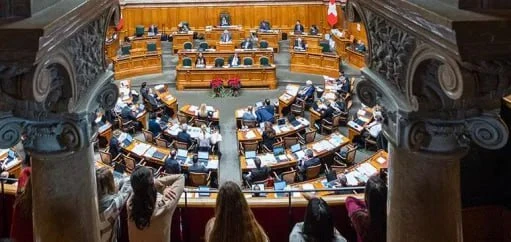Switzerland is discussing the issue of organizing a peace conference on the return of Nagorno-Karabakh Armenians



Armenia and Azerbaijan have a fundamentally different perception of peace. Laura Baghdasaryan (video)
Higher education is not required to become the chairman of the commission. I have nothing to convince (video)
Armenia benefits from exceptional conditions. Russian gas is the cheapest on the market (video)
"The Armenians said that they would drink tea in Baku. Now they are drinking tea in isolation." Aliev
"Now they don't shoot because they give what they want." Robert Kocharian
Pashinyan has a huge amount of internal evil, if he stays, there will be no internal solidarity in RA. Kocharian
Robert Kocharyan gave an interview to Channel 5
In general, it was a metal mine. the prime minister about the problematic state of the air defense system in the 44-day war
Mom, I will bear your pain, my world, you did the impossible for me, I'm sorry, I couldn't. Vahagn Aleksanyan
You who are showing weapons, don't hand over 5-6 billion worth of weapons to the enemy. Sharmazanov to Pashinyan
Vardan Ghukasyan is kept in unacceptable conditions, which seriously threaten his life
Ex-Minister of Defense Mikael Harutyunyan is wanted again
The court refused to detain Vahan Kerobyan in a case more than 10 years old
Let me show you the achievements of the army's weapons and equipment in recent years. Pashinyan to Serzh Sargsyan
I am not against wheat and gasoline and everything coming from Azerbaijan, but is this equivalent to what is happening with the Syunik Corridor and the peace process? Serzh Sargsyan
Authorities were reluctant to fully reveal what happened during the 44-day period (video)
Samvel Shahramanian is aware that there was a list of the elite to be captured beforehand. Serzh Sargsyan (video)
What was proposed in 2019 as a solution to the Karabakh problem (video)
CP will not form a government in Vagharshapat. what does "Heritage" offer (video)
An active political dialogue has been formed between Armenia and Saudi Arabia